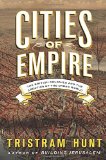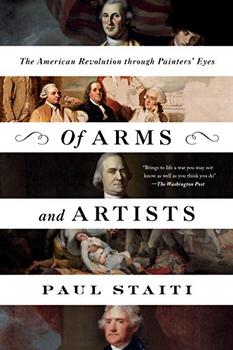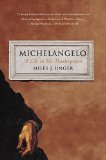Summary | Excerpt | Reviews | Beyond the book | Read-Alikes | Genres & Themes | Author Bio

 Book Reviewed by:
Book Reviewed by:
Poornima Apte
Buy This Book
It was sheer coincidence that I finished the brilliant Cities of Empire just as news of the 2014 Hong Kong Umbrella protests came to light. Hong Kong was returned to China in 1997 when Britain's 99 year lease ended. As the author Tristram Hunt, a member of the British Parliament, writes in an introduction to his lively treatise, the handover ceremony did not sit well with His Royal Highness the Prince of Wales, who could barely stomach watching "another piece fall from his family inheritance." The transfer took place under the aegis of a governing paradigm: "one country, two systems" — a model fully endorsed by Britain. Along the way though, something went wrong with the execution of that principle. China isn't too keen that Hong Kong's new chief executive be democratically elected without being vetted by Beijing, a decision that essentially means a clampdown on political rights. Hence, the protests. The moral of the lesson, that geopolitical forces are fluid, is a no-brainer. Yet what these protests and the book together serve to do is let the reader step back and take a look at the tides of history and marvel at their intricate workings.
It's also precisely what Cities of Empire does so brilliantly. The book is a world tour — of ten cities all with the stamp of the British Empire. Some, like Bombay (Mumbai), Calcutta (Kolkatta), Cape Town, and Bridgeport, are obvious candidates. Yet others, such as Boston and Liverpool (which was chosen to demonstrate the effects of the rise and fall of the empire) are less so. Hunt expertly avoids the topic of whether the Empire was good or bad, charting, instead, its expansion — and showing how it learned its lessons over the years and modified its policies accordingly. It's what allowed such a small country, a cluster of islands essentially, to dominate the world stage for well over 200 years. The sheer audacity and strategy needed to even execute such a thing are unimaginable. Hunt gives us a glimpse into the process.
The book tracks the process in each city, beginning when the Empire first made contact, and then traces its urban landscape changes, and how each city served to fuel the Empire's outsized geopolitical ambitions. For example, the port city of Bridgeport was a conduit for funneling back profits from plantations and human trafficking. The plan was "to find some eighty pioneer colonists — hired as company employees-cum-tenant farmers — to begin producing crops on the island." The horrific means through which these ends would eventually be met are represented by The Cage in downtown Bridgeport – a wood-and-wire holding pen for runaway slaves and black offenders awaiting punishment.
Hunt shows how the Empire's geopolitical goals changed over time. Henry Dundas, one of the key players in Britain at the time, argued, in the aftermath of the American War of Independence, that the "next phase of British imperialism should be a trading rather than colonizing one." With growing interest in the potential riches from India, Britain's colonial interests "shifted decisively from the Americas towards India." Central to this "swing," was the Cape of Good Hope at the tip of Africa, a successful passage around which was required to access India and the East. Trade with India was the central pillar of the imperial plan and this would mean British control of the Cape of Good Hope and the growing settlement at Cape Town. After all, at the time, whoever controlled Cape Town, controlled access to India. The city went from being "a second-tier refreshment station to axis of Empire." Of course once the Empire was in India, there was conflict about purpose, at least initially: "Was it fundamentally political with economic consequences or fundamentally economic with political consequences?" The answer, as India's history shows, is that Britain realized that one can't exploit a country's resources without also meddling in its internal politics.
Fast forward to the twenty-first century, it would seem that history has come full circle. Britain, Hunt points out, is now at the receiving end of Empire. These days, consumer durables from China are heading into Britain through Liverpool. The controversial proposal to build the 50-story "Shanghai Tower" in the heart of Liverpool - in homage to Liverpool's sister city - illustrates how geopolitical power continues to shift. While many in town do not appreciate being "Shanghai'd", the leader of the city council insists: "We do not live in the past. We are not a museum. Progress and growth mean facing up to often uncomfortable imperial realities." Some who read this marvelous book would call this karma. Or simply an inconvenient truth.
![]() This review
first ran in the January 7, 2015
issue of BookBrowse Recommends.
This review
first ran in the January 7, 2015
issue of BookBrowse Recommends.

If you liked Cities of Empire, try these:

by Paul Staiti
Published 2017
A fascinating look at how the art world viewed the American Revolution, and how their work still effects the way we view those events today.

by Miles J. Unger
Published 2015
The life of one of the most revolutionary artists in history, told through the story of six of his greatest masterpieces.





The House on Biscayne Bay
by Chanel Cleeton
As death stalks a gothic mansion in Miami, the lives of two women intertwine as the past and present collide.

The Flower Sisters
by Michelle Collins Anderson
From the new Fannie Flagg of the Ozarks, a richly-woven story of family, forgiveness, and reinvention.

The Funeral Cryer by Wenyan Lu
Debut novelist Wenyan Lu brings us this witty yet profound story about one woman's midlife reawakening in contemporary rural China.
Your guide toexceptional books
BookBrowse seeks out and recommends the best in contemporary fiction and nonfiction—books that not only engage and entertain but also deepen our understanding of ourselves and the world around us.